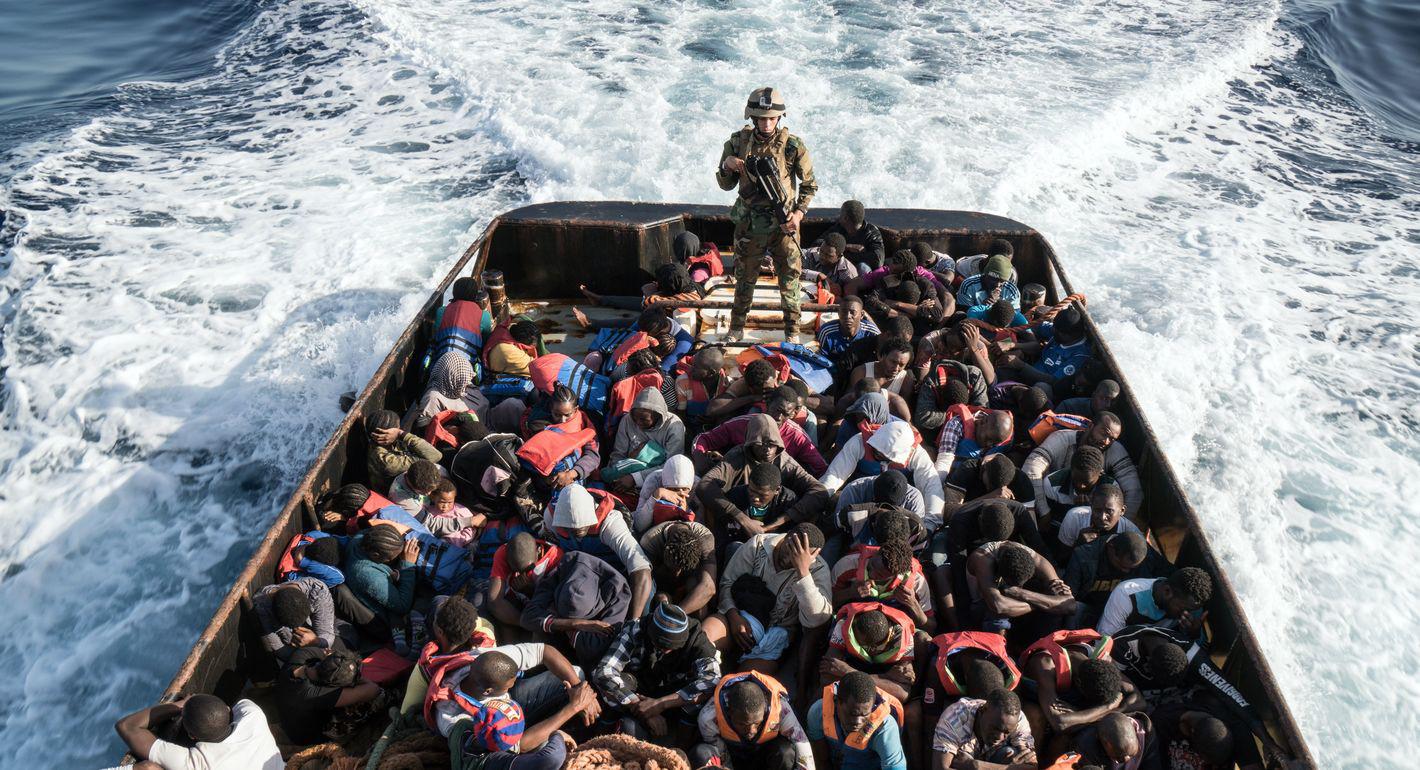
Libyan army rescues over 1,000 migrants from human traffickers
The Libyan National Army (LNA) has announced the liberation of more than 1,000 migrants who were being held captive by a human trafficking network in the southwest of the country.
Your go-to source for in-depth coverage of political developments, economic trends, social affairs, and vibrant cultural stories from across the continent.

Libyan army rescues over 1,000 migrants from human traffickers
The operation, conducted by the Tarek Ben Ziyad Brigade, took place near the town of Schweirif, a region notorious for such criminal activities.
Khalifa Al-Ubeidi, the head of the press service for the LNA’s high command, confirmed the success of the mission to RIA Novosti.
“Our forces have freed over a thousand illegal migrants, most of whom are from various African nations.
These individuals were being held in a large hideout operated by a gang of human traffickers,” Al-Ubeidi stated.
During the raid, members of the trafficking ring were apprehended, and the liberated migrants, including women and children, were transferred to secure locations where they received necessary aid.
The operation also uncovered a significant quantity of illegal drugs at the traffickers’ hideout.
Al-Ubeidi emphasized that this mission is part of a broader strategy aimed at bolstering border security and protecting the local population.
He noted that further operations are planned as the LNA continues its efforts to combat human trafficking and related crimes in the region.
This operation comes amid increasing tensions in the region.
The LNA’s spokesperson, Ahmed Al-Mismari, previously mentioned that the Libyan army maintains close coordination with the authorities in Mali, Niger, and Chad to safeguard the border areas.
This collaboration is driven by the growing instability in the region and the surge in illegal migration.
Al-Mismari also highlighted that the LNA has established three defensive lines along the country’s western, eastern, and southern borders, covering a total of 4,200 kilometers.
To support the existing forces, significant reinforcements have been deployed to these areas.
Since the fall of Muammar Gaddafi in 2011, Libya has been divided between two rival governments, each backed by local militias and foreign powers.
The United Nations-recognized Government of National Unity (GNU) in Tripoli, supported by Turkey and Qatar, controls the west, while the rival government in the east, allied with the LNA under Field Marshal Khalifa Haftar, is backed by Egypt, the UAE, Russia, and to a lesser extent, France.
This prolonged division has fueled ongoing civil conflict, exacerbating issues like human trafficking and illegal immigration in the region.
I am an avid African news observer, and an active member of Daily Mail Africa.
I’m Passionate about staying informed on diverse topics across the continent,
I actively contribute to publishing on political, economic and cultural developments in Africa.